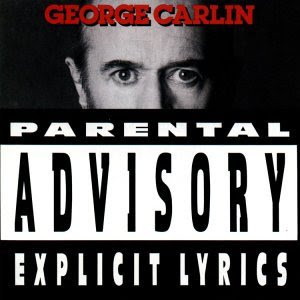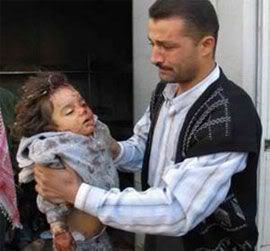
When I took my last long trip, I took along George Carlin’s “When Will Jesus Bring the Porkchops.” I’ve been a fan for years, but was particularly struck by his treatment of the prevalance of euphemisms. For a long time, I’ve noticed sanitized language used to talk about war (eg. “collateral damage” or “precision bombing”). It’s not hard to find it when reading history (eg. “Indian removal” or “internment camps”). I’ve been thinking about the propaganda and the framing of messages we’ve seen in the more recent past, and it all fit.
As George points out, euphemisms obscure meaing rather than enhance it; they shade the truth. They may replace words that people are uncomfortable with or simply put a better face on things that sound too negative. They may also dress up something that seems too ordinary. “Thighs” become “drumsticks,” “crow’s feet” are “laugh lines,” and “pimples” are “blemishes.”
“Toilet paper” is “bathroom tissue,” and “sweatpants” are “active wear.” “Second-hand clothing” is now “vintage apparel.” “Toupees” have been referred to as “hair appliances” or even a “hair replacement system,” much as an “answering machine” is an “answering system” or a “mattress and box spring” is a “sleep system.” Cars now have “braking systems” rather than just brakes, and the seat belts and air bags are an “impact-management system.” We watch “animation” rather than lowly “cartoons” or “daytime dramas” rather than “soap operas.”
Theaters have become “performance spaces,” and arenas are now “event centers.” Hospitals are “medical centers,” libraries are “learning resource centers” and so on. “Profits” are “earnings,” “criticism” is “feedback” and “special delivery” is now “priority mail.” “Trailers” are “manufactured homes,” “mouthwash” is a “dental rinse,” “soap” is a “clarifying bar,” and “hair spray” is a “holding mist” or “sculpting gel. “Cough drops” are “lozenges,” and “constipation and diahrea” are “occasional irregularity and lower gastric distress.”
Euphemisms have been used to “soften the language” when it comes to the condition in combat where a soldier’s nervous system has reached the breaking point. In World War I, it was called “shell shock.” In World War II, it became “battle fatigue,” definitely less harsh-sounding, though two syllables became four.
By the Korean War, the condition became known as “operational exhaustion,” nice and sterile sounding, like something that might happen to your car. Finally Vietnam, and “post-traumatic stress disorder.” It still has eight syllables, but has been hyphenated.
Published also today at Democracy Cell Projectand Silenced Majority Project





